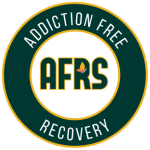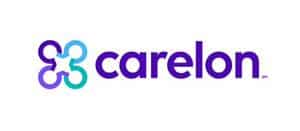Addiction is a challenging, complex issue wherein millions of lives are lost every year. Although medication and therapy have sufficiently helped many, there is now an appreciation for holistic methods.
Essential Takeaways
- Holistic Approaches Enhance Recovery: Integrating holistic practices such as mindfulness, nutritional therapy, and creative expression can address the underlying causes of addiction, promoting comprehensive healing and resilience.
- Personalization is Key: Each individual’s recovery journey is unique. Personalizing treatment plans to include both holistic and traditional methods tailored to specific needs can significantly enhance the chances of successful recovery.
- Support Networks Matter: Building a supportive network of healthcare providers and loved ones can help individuals feel more comfortable exploring and integrating holistic approaches into their recovery, paving the way for a healthier and happier future.
These healing processes touch the body and recovery’s emotional, mental, and spiritual aspects. This article explores holistic approaches to treating addiction, highlighting their benefits and challenges and how they complement traditional methods for a complete recovery journey.
What Are Holistic Approaches?
By this, holistic approaches deal with the whole person: body, mind, and spirit. What holistic treatment tries to do is not necessarily destroy the addiction itself but understand what brings about such behaviors that characterize addiction and thereby treat these problems. In this way, people learn to come to a better understanding of themselves and their relationship with substances.
Key Components of Holistic Approaches
Mindfulness and Meditation | Mindfulness practices help individuals become more aware of their thoughts, feelings, and behaviors, promoting a sense of calm and clarity. Meditation can reduce stress and anxiety, allowing individuals to cope better with triggers and cravings. |
Nutritional Therapy | A balanced diet plays a vital role in recovery. Nutritional therapy focuses on providing the body with essential nutrients that may have been depleted during addiction. Proper nutrition can enhance mental clarity and emotional stability, supporting overall well-being. |
Physical Activity and Exercise | Physical activity can boost mood, reduce stress, and promote overall health. Exercise releases endorphins, which can help counteract feelings of depression and anxiety often associated with addiction. |
Art and Music Therapy | Creative therapies allow individuals to express their emotions in non-verbal ways. Art and music therapy can be particularly beneficial for those who struggle to articulate their feelings, providing a therapeutic outlet for self-exploration and healing. |
Spiritual Practices | Spirituality can play a crucial role in recovery. Whether through organized religion or personal spiritual practices, connecting to something greater than oneself can foster hope, resilience, and a sense of purpose. |
| Complementary Therapies | These include acupuncture, massage, and aromatherapy. Such practices can help alleviate physical discomfort, reduce anxiety, and promote relaxation, which are beneficial in recovery. |
Total Benefits of Holistic Treatment Methods
Holistic approaches offer some benefits for an addict wanting to seek treatment. Some of the benefits of holistic therapies for addiction recovery include:
Full Recovery
Holistic recovery methods will involve all the reasons that caused addiction, which may include emotional, mental, or spiritual issues. Since the entire person is treated, the patient heals more profoundly and achieves changes in the long term.
Better Coping Competence
Sobriety that flows from mindfulness and other holistic practices assures that a client learns to observe and control all stress triggers, except the urgings that may find their way into substance use.
De-stigmatization
Holistic practices destigmatize treatment. The idea of addiction as a multifaceted problem may encourage an addict to seek treatment and explore more than one treatment option.
Good Interpersonal Relationship
Holistic practice often emphasizes interpersonal relationships. Relating to others after healing using holistic practices may become accessible for individuals since such networks help them recover.
Empowerment and Self-discovery
Holistic treatment attempts to bring people to look within themselves regarding their feelings, thoughts, and behavior. Self-discovery very often empowers the individual toward greater responsibility for their recovery process.
The Role of Mindfulness in Recovery
Mindfulness has recently gained popularity as an effective tool for addiction recovery. By cultivating present-moment awareness, individuals can better manage cravings, reduce anxiety, and improve overall well-being.
Mindfulness Techniques
Breathing Exercises | Focusing on the breath can help ground individuals and bring awareness to the present moment. Simple techniques, such as inhaling deeply and exhaling slowly, can be practiced anywhere and anytime. |
Body Scans | This technique involves mentally scanning the body for sensations, making individuals more aware of physical and emotional experiences. Body scans can promote relaxation and reduce tension. |
Guided Meditations | Listening to guided meditations can help individuals navigate their thoughts and emotions during challenging moments. Many apps and online resources are available to provide support in this area. |
Benefits of Mindfulness
- Reduced Cravings. Mindfulness can help individuals recognize cravings without acting on them, allowing for healthier decision-making.
- Emotional Regulation. By becoming more aware of their emotions, individuals can learn to respond rather than react, fostering healthier interactions with themselves and others.
- Stress Reduction. Mindfulness practices have been shown to lower stress levels, crucial for maintaining sobriety.
The Importance of Nutrition in Recovery
Nutrition plays a vital role in addiction recovery. Substance abuse can lead to nutritional deficiencies, which can affect mental and physical health. Nutritional therapy focuses on restoring balance and supporting overall well-being.
Key Nutrients for Recovery
- Omega-3 Fatty Acids
Found in fatty fish, flaxseeds, and walnuts, omega-3 fatty acids are essential for brain health. They can help improve mood and reduce symptoms of depression and anxiety.
- B Vitamins
B vitamins are crucial for energy production and mental health. Foods rich in B vitamins, like whole grains, leafy greens, and legumes, can support recovery.
- Magnesium
Magnesium is known for its calming effects on the nervous system. Foods like nuts, seeds, and dark chocolate can help replenish magnesium levels and promote relaxation.
Practical Tips for Nutritional Therapy
- Balanced Meals. Incorporate a variety of whole foods into daily meals, including fruits, vegetables, lean proteins, and healthy fats.
- Hydration. Staying hydrated is essential for overall health. Aim to drink plenty of water throughout the day.
- Mindful Eating. Practicing mindfulness during meals can help individuals develop a healthier relationship with food, enhancing awareness of hunger cues and emotional eating triggers.
Physical Activity: A Key Component of Recovery
Exercise is a powerful tool in addiction recovery. Regular physical activity can boost mood, reduce stress, and promote overall health. Incorporating exercise into a recovery plan can lead to numerous benefits.
Types of Physical Activity
| Aerobic Exercise | Activities like running, cycling, and swimming can increase endorphin levels, helping to improve mood and reduce anxiety. |
| Strength Training | Strength through resistance exercises can boost self-esteem and promote a sense of accomplishment. |
| Mind-Body Exercises | Yoga and tai chi combine physical movement with mindfulness, promoting relaxation and reducing stress. These practices help individuals connect with their bodies and foster a sense of peace. |
Setting Realistic Exercise Goals
When incorporating physical activity into recovery, setting achievable goals is essential. Start with short sessions of exercise and gradually increase duration and intensity. Celebrate small victories along the way to stay motivated.
Creative Therapies: Art and Music in Recovery
Art and music therapies allow patients to express themselves freely through mediums other than verbal language. Such forms are exceedingly helpful for those who cannot easily find the words to express feelings, allowing for channels of expression and emotional processing within the recovery process. Creativity will enable people to be expressive on a subliminal level, which can aid immensely during this healing process.

Advantages of Art Therapy
Art therapy is a strong emotionally expressive outlet; through it, an individual may find an insight into communication in complex emotions creatively. Healing and self-discovery are promoted in this therapy as participants explore their feelings through visual arts, the activities accomplished to reduce tension, creating a sense of serenity that calms them.
As people work on developing their creativity, they feel accomplished, which enhances their well-being and enables them to achieve self-esteem.
Advantages of Music Therapy
Of particular interest to patients is that music therapy can offer an emotional human bonding between people because it can stimulate both memories and emotions. This type of therapy is also effective in social interaction, particularly in group sessions, since people can sometimes establish supportive relationships. Engaging in music therapy, whether through listening or producing, often improves mood and reduces isolation, which can be essential aspects of recovery.
Spirituality in Recovery
Spirituality plays a vital role in recovery. People find increased resilience and hope through an impassioned connection with God, practicing spiritual traditions, or exploring deeply personal beliefs and values. Spiritual practice makes a difference in recovery, and most people find it brings a more meaningful purpose and guidance in getting around the challenges.
Ways to Incorporate Spirituality
Meditation or prayer can be practiced regularly. It ensures a touch of the inner self, a higher power, and a sense of peace and support.
- Nature Connection. The time spent in nature can be a very spiritual experience. For example, it may involve hiking, gardening, or simply watching the sunset and connecting with the world.
- Community Involvement. Spiritual or religious communities may give the individual a sense of belonging and an invaluable support network in recovery.
Integrative Therapies in Holistic Recovery Such complementary therapies have been excellent supplemental components of traditional addiction treatment, helping bridge any psychological gaps or symptom-relieving ways to relax and improve well-being. Integrating holistic approaches can enable individuals to improve their physical and emotional health to form a whole overall recovery experience.

Common Supporting Treatments in Acupuncture
An ancient practice, pain relief and stress reduction, balancing of the body’s energy for well-being. Massage Therapy: Massage therapy promotes relaxation and relieves tension, helping individuals to manage physical and emotional stress during recovery. Aromatherapy – Essential oils will create a soothing atmosphere, reduce stress, and improve the patient’s mood.
Overcoming Challenges in Holistic Approaches
While holistic approaches offer valuable benefits, they are not without challenges. Individuals may face various obstacles when integrating these methods into their recovery journey.
Stigma Surrounding Holistic Practices
Despite growing acceptance, some individuals may still face stigma regarding holistic approaches. Traditional views on addiction treatment can overshadow the importance of holistic methods.
- Education and Advocacy. Raising awareness about the benefits of holistic practices can help reduce stigma and encourage individuals to explore diverse treatment options.
Finding Qualified Practitioners
It’s essential to find qualified professionals who specialize in holistic approaches. However, the lack of regulation in some areas can make it challenging to identify skilled practitioners.
- Research and Recommendations: When choosing holistic treatment providers, seek recommendations from trusted sources, read reviews, and verify qualifications.
Personal Readiness for Change
Individuals may hesitate to embrace holistic methods due to fear of change or the unknown. Building a supportive network can help individuals feel more comfortable exploring new approaches.
- Gradual Integration. Start with one or two holistic practices and gradually incorporate more as comfort levels increase.
Personalizing Your Holistic Recovery Journey
Personalization is essential in recovery because no one has the same complexion. Combining different holistic techniques with conventional techniques best suited for a person’s needs may be an added boost to achieving the desired result. Personalizing your recovery starts with self-assessment; this calls for reflecting on your preferences, interests, and goals.
As such, it will be imperative to consider every holistic practice that resonates with you and how it will help integrate your recovery journey. You should also consult experts, as healthcare specialists can guide you toward excellent complementary therapies that fit your recovery goals. You must set realistic goals incorporating both traditional and holistic practices. Celebrating your progress will, however, keep you motivated and on track.
Final Thoughts
Holistic approaches to addiction treatment offer a comprehensive and compassionate alternative to traditional methods. By addressing the physical, emotional, and spiritual dimensions of recovery, individuals can develop a deeper understanding of themselves and their relationship with addiction.
Integrating holistic practices like mindfulness, nutritional therapy, and creative expression can enhance recovery and foster resilience, self-discovery, and lasting change.
If you or somebody around you is struggling with addiction, consider searching for holistic approaches that can be incorporated into a personalized treatment plan. Remember, recovery is a journey, and every step counts.
Ready to explore holistic recovery from addiction? Contact us today to discuss personalized recovery options for traditional and holistic approaches. Let’s start paving the road to a healthier, happier future together!

FAQs
- What are holistic approaches to addiction treatment?
Holistic approaches to addiction treatment consider the whole person—body, mind, and spirit. They include practices such as mindfulness, nutritional therapy, physical activity, and creative therapies to address the underlying causes of addiction and promote overall well-being.
- Can holistic approaches replace traditional addiction treatments?
Holistic approaches are meant to complement traditional treatments, not replace them. While conventional methods like medication and therapy are essential for many, integrating holistic practices can enhance recovery by addressing the emotional and spiritual aspects of addiction.
- How can mindfulness help in addiction recovery?
Mindfulness helps individuals become more aware of their thoughts and feelings, allowing them to manage cravings and reduce anxiety. Meditation and breathing exercises can foster emotional regulation and improve overall mental health.
- What role does nutrition play in addiction recovery?
Nutrition is crucial in recovery, as substance abuse can lead to nutritional deficiencies. A balanced diet helps restore health, supports mental clarity, and stabilizes mood, making it easier for individuals to cope with the challenges of recovery.
- Are holistic therapies safe for everyone?
While many holistic therapies are safe, individuals must consult healthcare professionals before starting any new treatment. Personal needs and circumstances vary, so professional guidance can help ensure a safe and effective recovery plan.


























